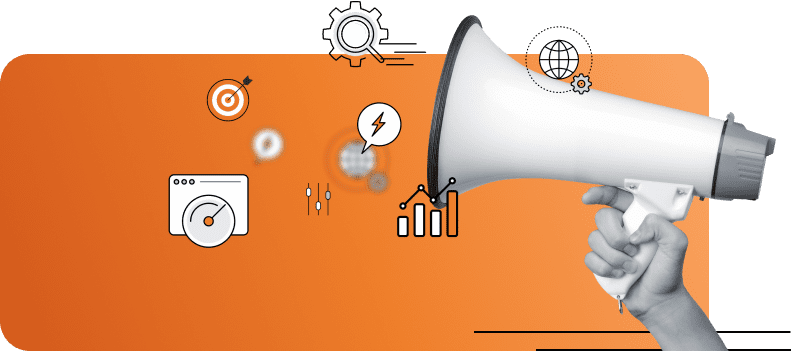In the highly competitive world of e-commerce, standing out from the crowd is essential for success. One crucial aspect that can significantly impact your online store’s visibility and traffic is search engine optimization (SEO).
Shopify, a leading e-commerce platform, offers a user-friendly interface and powerful tools to help you optimize your website.
In this blog post, we will explore the importance of Shopify meta description and guide you through the process of adding them to your store for improved SEO and marketing success.
What Are Meta Tags?
Meta tags are crucial elements in your Shopify store’s HTML code that help search engines understand and rank your pages. When you add meta tag to Shopify, you’re providing valuable information about each page’s content. The most important meta tags for SEO are:
- Title Tag
- Meta Description
- Header Tags (H1, H2, etc.)
- Alt Tags
By optimizing your Shopify title and meta description, as well as your Shopify product tags SEO, you can improve your visibility and attract more organic traffic. If you need to change meta description Shopify, simply go to your page’s settings and update relevant fields.
Why Are Meta Tags Important for Shopify Stores?
If you’re running a Shopify store, you might be wondering how to add meta tag to Shopify and why it’s crucial for your online success.
Meta tags, especially the Shopify title and meta description, play a vital role in your store’s search engine optimization (SEO) strategy. Here’s why:
- Improved Search Engine Rankings
- Increased Click-Through Rates
- Enhanced User Experience
By understanding the importance of meta tags and implementing best practices for Shopify title and meta description, you can change meta description Shopify, optimize your store’s visibility, attract more qualified traffic, and ultimately boost your online sales.
How to Add Meta Tags in Shopify
Adding meta tags to your Shopify store is crucial for improving your website’s visibility and search engine rankings.
When you add meta tag to Shopify, you can customize the title and meta description for each page, helping search engines understand your content creation better. Here’s a quick guide on how to change meta description Shopify:
- Log in to your Shopify admin panel
- Go to “Online Store” and click on “Preferences”
- Scroll down to the “Title and meta description” section
- Add your desired title and meta description for your homepage
- To add meta tags to individual product pages, go to “Products” and select a product
- Scroll down to the “Search engine listing preview” section and customize the title and meta description
Remember, when you’re adding Shopify product tags SEO, keep them relevant and descriptive. By optimizing your Shopify title and meta description tags, you can improve your store’s click-through rates and attract more potential customers.
Optimizing Your Shopify Meta Tags
Optimizing your Shopify meta tags is crucial for improving your store’s visibility and driving more traffic to your products.
When you add meta tag to Shopify, you’re giving search engines valuable information about your store and its offerings. To make the most of your Shopify title and meta description, follow these best practices:
- Keep your title tags concise and relevant, and include your primary keyword
- Write unique, compelling Shopify meta descriptions that accurately summarize your page’s content
- Incorporate relevant keywords naturally throughout your meta tags, including Shopify product tags for SEO
- Ensure each page has its own unique set of meta tags to avoid duplicate content issues
By implementing these strategies, you’ll be well on your way to change meta description Shopify and boosting your store’s search engine rankings.
Remember, optimizing your Shopify meta description is an ongoing process, so be sure to regularly review and update them as needed to stay ahead of the competition.
Shopify Product Tags and SEO
Shopify is a powerful e-commerce platform that offers various features to optimize your online store’s visibility and search engine rankings. One crucial aspect of Shopify SEO is effectively utilizing product tags.
By strategically adding Shopify meta description, you can enhance your store’s discoverability and attract more potential customers. Here’s how you can leverage Shopify product tags SEO:
- Use relevant keywords
- Optimize meta descriptions
- Customize titles and meta descriptions
- Utilize Shopify product tags for SEO
- Stay up-to-date with Shopify SEO best practices
By implementing these strategies and effectively using Shopify product tags SEO, you can improve your store’s visibility, attract more organic traffic, and ultimately drive sales.
Remember, optimizing your Shopify store for SEO is an ongoing process, so continually monitor and refine your approach to stay ahead of the competition.
Utilizing Shopify Apps for SEO
Optimizing your Shopify store for search engines is crucial for driving organic traffic and increasing sales. One effective strategy is to utilize Shopify apps specifically designed for SEO.
These apps can help you easily add meta tag to Shopify, craft compelling meta descriptions, and optimize your Shopify product tags SEO performance. Some popular Shopify SEO apps include:
- SEO Manager
- Smart SEO
- Plug-in SEO
By leveraging these apps, you can streamline the process to change meta description Shopify and ensure that your product pages are properly optimized for search engines.
Remember, effective use of Shopify product tags and well-crafted Shopify meta description can significantly boost your store’s visibility in search results, ultimately driving more targeted traffic and potential customers to your site.
In conclusion, incorporating Shopify meta descriptions is a crucial step in enhancing your SEO efforts and driving more organic traffic to your website.
By understanding the importance of meta tags, following best practices for optimization, and leveraging Shopify’s built-in features and apps, you can improve your store’s visibility, attract more potential customers, and ultimately boost your sales.
Investing time and effort into crafting compelling and relevant meta descriptions can pay off significantly in the long run, as it helps search engines and users alike understand what your pages are about and why they should visit your store.
Don’t underestimate the power of this small but mighty element of your Shopify SEO strategy. Start optimizing your Shopify meta tags today and watch your online business soar to new heights!









